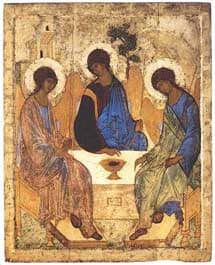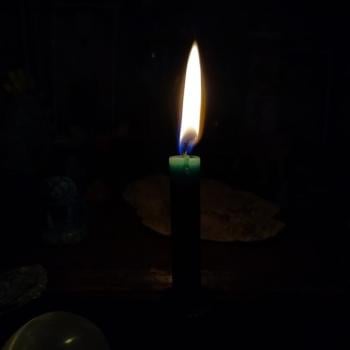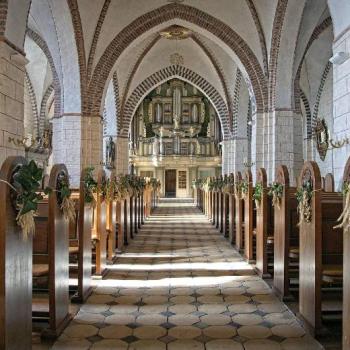By Mike Hayes
 The Trinity is the manner in which Catholics believe God is revealed to the world. The Catechism of the Catholic Church tells us, "The mystery of the Holy Trinity is the central mystery of the Christian faith and of the Christian life" (CCC, #261).
The Trinity is the manner in which Catholics believe God is revealed to the world. The Catechism of the Catholic Church tells us, "The mystery of the Holy Trinity is the central mystery of the Christian faith and of the Christian life" (CCC, #261).
The Church shows that because God is "mystery," meaning that we just can't pin God down -- we're unable to know everything there is to know about God -- God has tried to communicate to us just who He is. Traditionally, the Church expressed this as God being revealed as Father, Son and Holy Spirit, three expressions or "persons" of one divine essence. The Trinity is one. Catholics do not believe in three Gods but rather one God in a unity of three persons with one divine nature. Sound confusing?
One analogy that could be helpful is to think of the different states of matter: solid, liquid, and gas. Ice can become water and water can become steam. All of these are the same essence and contain equal amounts of hydrogen and oxygen but they appear in different forms.
God the Father
The church uses the image of the Father -- the Creator from which everything flows and has its being -- to express the first person of the Trinity. While the Son and the Holy Spirit are not "lesser gods," they do proceed from the Father as God's own self-gift to humanity.
God the Son
The second person of the Trinity is the Son -- Jesus himself, the God become man. Catholics believe that God freely chooses to come into human history in the person of Jesus. God becomes like us and dies our human death for us. But because Jesus is God, He cannot be held by death and rises to a new life, supremely better than human experience.
God the Holy Spirit
The third person of the Trinity is the Holy Spirit, who proceeds from both the Father and the Son. Jesus announces that His Father will send the Holy Spirit to be with and in the disciples, to teach and guide them. The Spirit is God's real presence living within all of us, which brings us inspiration (which literally means "to draw in the Spirit").
God is three "persons" but one "essence." The Father is just as much "God" as the Son and neither is "more God" than the Spirit.
Still confused? Let's try thinking of these things in a yet another way. Instead of "persons" let's substitute the word "expressions" of God.
Expressions of God
The Trinity can be thought of in these three expressions:
1) God is "beyond us." We can never really fathom what God is, but we know that He is far beyond our limited human nature or anything we can come to know in that human experience. God is the ultimate mystery, the question that we never fully answer. This is God the Father -- the creator, the one who is beyond all understanding.
2) God is also "among us." We come to know God in the person of Jesus. God takes on our human nature and becomes "one of us." Catholics also believe that this human experience of God continues in the sacrament of the Eucharist. God the Son is among us.
3) God is also "within us." God is the "divine spark" that awakens us to the fact that we are alive. God imbues us with our creativity, our gifts and talents, and our limitations as well. As we come to know ourselves as people, we also come to know God -- who knows us better than we know ourselves. This is the experience of God the Holy Spirit.
God is all these things and more. We don't know all that God is but this is how God has been revealed to us throughout the course of our history -- how we have come to best express God.
Mike Hayes is a senior editor at Busted Halo, a Patheos Partner, where this article was first published. It is reprinted with permission.
2/16/2010 5:00:00 AM




